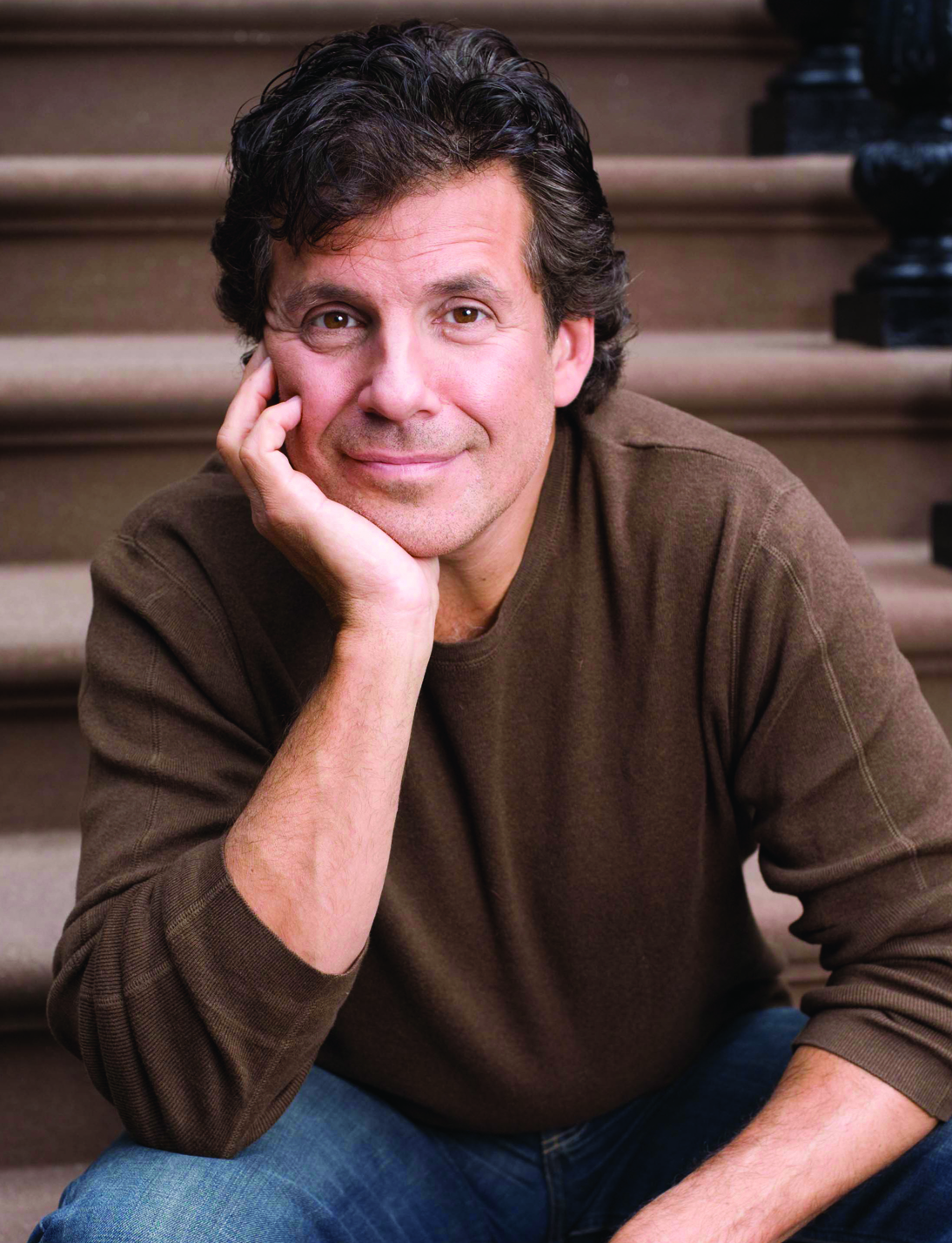The Story of the Child of Holocaust Survivors: Laughter, Tears, and the Ghosts of World War II
A Jew Grows in Brooklyn
Jacqueline Onassis Theater
120 W. 46th Street
New York, NY

Jake Ehrenreich, the star of the one-man show, A Jew Grows in Brooklyn, rolls along nicely in a 90-minute monologue about his life growing up in the borough of Brooklyn in the late 1950s and 1960s, providing a packed theater with much humor about his family and friends. He sings, he dances, he tells jokes and relives his life in a nicely staged historical show.
Then, about a third of the way through the performance, he has to sit down. He sags on to a park bench on stage because he arrived at the part of the show when he has to talk about the Holocaust and what happened to his parents and family. He can’t stand up while discussing that; it's too much.
What followed was the searing story of what happened to his parents and the Jews of Poland in World War II. His parents lived in eastern Poland. When Germany invaded in 1939 they fled, but wound up in the custody of the Russians. Jake’s family was arrested and deported to the far reaches of Siberia and the Soviet prison camp system, the gulag. There, in the freezing cold, they worked for the rest of the war. The Ehrenreichs survived, wound up in a ‘displaced persons’ camp when the war ended and in 1949 managed to make their way to America.
“Before the war, my parents, between them, had eight brothers and sisters,” Ehrenreich says in a slightly trembling voice. “After the war, they had none.”
The imprisonment of his parents in World War II is the lynchpin of his play. He was the first child of his family born in America, in 1957. He was raised by Polish Jews who knew absolutely nothing about America. Baseball, the Fourth of July and the song ‘Yankee Doodle’ were mysteries to them.
“They raised me without any background. I tried to grab every part of America that I could to be an American -- playgrounds, radios, baseball. And I did. I became -- we became -- Americans,” said the actor.
The history of his family in the gulag haunts his story. There are film clips of his dad giving testimony to the Shoah Foundation about his life as Jew in Poland. Jake constantly quotes his father remembering the dead relatives. He tells an achingly sad story about coming home from school one day to find his mother crying in the kitchen and trying to explain to him that happened a lot, whenever she remembered those who died in the concentration camps or were enslaved in the Soviet labor camps.
There is a great resiliency to Ehrenreich, though. He moved on. He remembered his family in Poland but moved on in America. He became a successful actor and singer and carved out a nice life for himself, as did his parents (they owned a furniture company).
His life as a Jew growing up in Brooklyn, and in America, is the heart of his play, an Off Broadway hit a few years ago that has been brought back. It is tragic at times, but howlingly funny at others. His story works because it was much like the story of everybody who grew up in American cities in the 1960s and were eyewitnesses to much U.S. history.
The funniest parts of the play are set in New York’s Catskill Mountains, the historic ‘Borscht Belt,’ where millions vacationed at lavish hotels and sprawling bungalow colonies. It was where so many of the great comics of American history, from Jerry Lewis to Shecky Greene, learned their trade and where so many singers came to polish their acts. The Ehrenreichs rented a small bungalow there each summer for years and Jake recounts life there lovingly in a series of funny sketches.
This is a play driven by social history, not political history. He does not discuss any of the issues of the 1960s that threatened to tear the country apart. You never learn his political leanings.
But you do learn what it was like for the children of Holocaust survivors to grow up in America with their family. You understand how difficult it was for the survivors to adopt a new country, learn a new language, make new friends, struggle in a new job and how tough it was to grow up in a country in which members of your family were strangers.
None of the Ehrenreichs looked back. They remembered, but they did not look back. They put their arms around America, with all of its problems, and have embraced it ever since.
The star of the show, Ehrenreich, is a wonderful as he constantly plays two people, the comic recounting funny episodes of his life and the chronicler of the Holocaust and its survivors. He has an incredible ability to switch back and forth between the two men, smoothly, and bringing the audience along with him. His skill is evidenced by the long silences in the audiences when he discusses the Holocaust, that same aching silence in all plays about the tragic murder of six million people.
This is one more play about the Holocaust, another sad one, but each of them, year after year, country after country, tells a lot about history and the resiliency of the Jewish people.
PRODUCTION: Jack Ehrenreich, Sound: Erin Waters, Lighting: Anjeanette Stokes, Sets: Joseph Egan, Musica Direction; Elysa Sunshine, Costums: Lisa Ehrenreich. The show was directed by Jake Ehrenreich and Jon Huberth.
